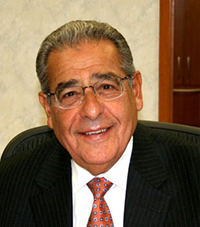Through our family law practice, we see many situations where family assets need to be clearly assigned, protected and managed so as to minimize or eliminate future discrepancies in ownership. When it comes to creative assets, such as artwork and written content, ownership and future intent is especially important to consider due to the nature of today’s digital age where information is shared globally on a massive scale.
We celebrate Martin Luther King this week. An especially poignant example, his family has been embattled in law suits challenging ownership of his personal assets for years. Just recently, a suit was brought forward between his children on who owns the right to his Nobel Peace Prize and personal bible, used by President Obama during his 2013 inauguration ceremony. A high profile case certainly, but a very familiar scenario. One family member wants what another family member feels they own. Unless clearly stated legally, the courts are left to decide.
Oftentimes, dividing personal assets is a concern following a death in the family, but equally common as divorce, which can carry an element of anger that complicates negotiations. In Rhode Island, assets acquired by spouses during their marriage generally are considered marital property and are subject to equitable division by the court in divorce or through settlement negotiations with the help of a division of assets attorney in Rhode Island. However, most divorces involve complex asset-division issues, such as whether an asset was accrued or vested before or after the date of marriage and when that asset can be obtained. Many assets, such as retirement benefits and stock options, are very difficult to value at the time of divorce because they are not obtained until a future date.
How can you ensure that your personal assets remain with you or the person you’ve intended to receive them?
- Create an assignment of tangible personal property. This is a legal document that includes a variety of possessions. It can assign ownership of specific jewelry, artwork, collections and other items of value to a specific individual or individuals.
- Set up a Trust. Once a Trust is established, other items such as land, vehicles and property can be added to the title or deed
- Draft a letter of intent. This legal, but less formal document spells out exactly how you wish your possession to be distributed and can be drafted and notarized easily.
It is important to protect the assets that you’ve acquired or created over the course of your lifetime. Consult with a lawyer experienced in asset-related laws to discuss your personal situation.














